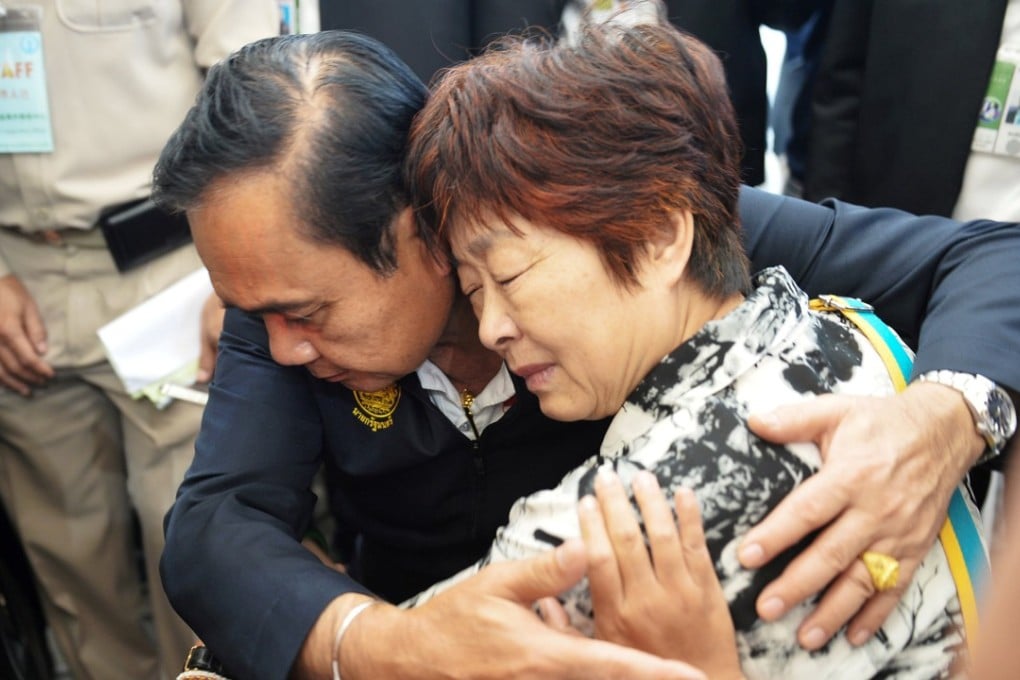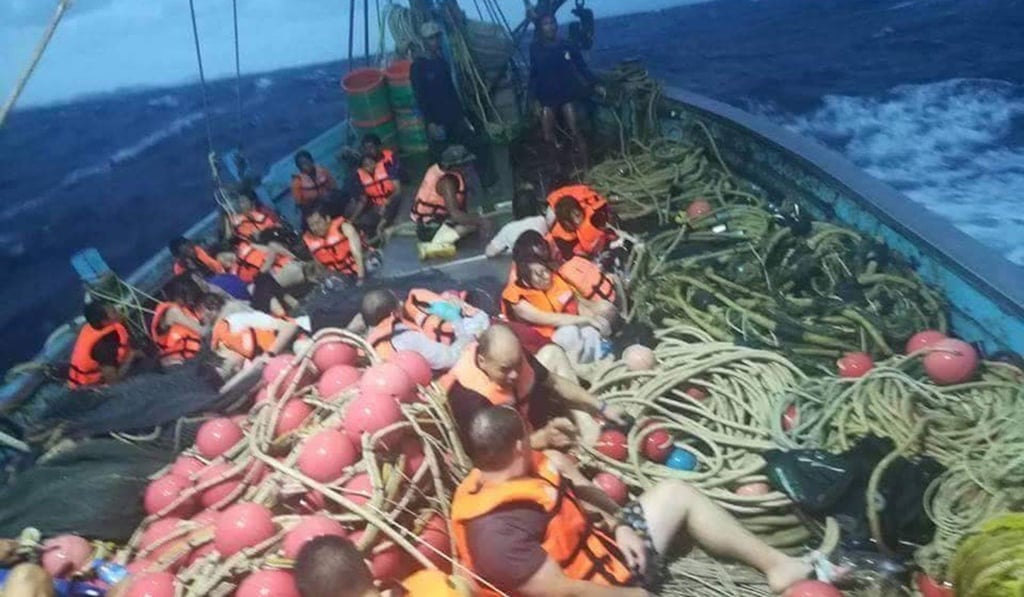Chinese tourist numbers fall as Phuket boat capsize deaths highlight Thailand’s terrible safety record
Chinese tourists make up a quarter of Thailand’s visitors, but after the handling of the recent boat accident in which 47 Chinese tourists died, and with the kingdom’s lax attitude to safety, authorities need to act quickly and decisively to retain Thailand’s tourism revenue

The boat accident that claimed the lives of 47 Chinese nationals off the Thai resort island of Phuket last month has shone a spotlight on the kingdom’s poor safety record and spread unease among tourism authorities and the government.
The Ministry of Tourism and Sports said last week it had revised down its forecast for the number of Chinese arrivals for July to December by nearly 670,000, to 5.1 million, but insisted that Thailand would still achieve its target of 11 million Chinese tourists in 2018.
The Phoenix was carrying 105 people – mostly Chinese – when it capsized in rough weather while returning from a popular snorkelling site on July 5. It was among three vessels that ventured out in spite of a bad weather warning.
Chinese tourists accounted for almost a quarter of Thailand’s 35 million visitors in 2017, according to the ministry. The country expects to welcome 40 million tourists in 2018, with 20 million already reported in the first half of the year.

There are signs, however, that concerns among Chinese tourists about Thailand’s safety record are beginning to be felt.
The Bangkok Post, citing industry sources, reported that 7,300 hotel rooms in Phuket had already been cancelled for July and August as of late last month.